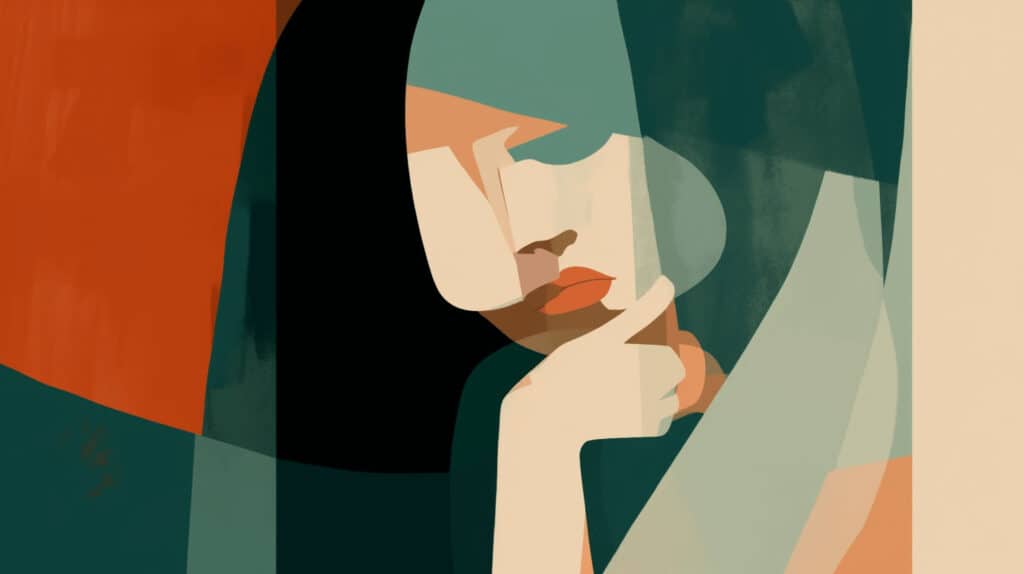As someone who has struggled with social anxiety and agoraphobia, I know firsthand how challenging it can be to navigate everyday life with these conditions.
It’s a constant battle between wanting to participate in the world around us and feeling completely overwhelmed by the thought of it.
In this article, we will dive into the distinctions between agoraphobia and social anxiety, as well as their connections to other mental health disorders, such as autism, ADHD, OCD, and avoidant personality disorder. We will offer practical tips and strategies to help individuals cope with and overcome the hurdles presented by agoraphobia and social anxiety.
Understanding Social Anxiety and Agoraphobia
Social anxiety and Agoraphobia are two common mental health disorders that can greatly impact a person’s quality of life.
Social anxiety is a persistent fear of social situations, especially those involving unfamiliar people. Individuals with social anxiety worry excessively about being judged, criticized, or rejected by others.
In contrast, agoraphobia is an anxiety disorder characterized by a fear of situations in which a person feels trapped, embarrassed, or unable to escape. This can include public transportation, open spaces, or even their own home.
People with agoraphobia may avoid these situations altogether or endure them with great distress.
Both agoraphobia and social anxiety can cause significant impairment in daily functioning and can be accompanied by other mental health conditions, such as depression, generalized anxiety disorder, and panic disorder.
It’s also worth noting that while agoraphobia and social anxiety are distinct conditions, they can sometimes coexist.

Agoraphobia vs Social Anxiety: What’s the Difference?
While agoraphobia and social anxiety may share some similarities, they are distinct conditions with unique symptoms and experiences.
The primary difference between agoraphobia and social anxiety is the focus of the fear.
Agoraphobia is centered around a fear of being trapped or unable to escape, whereas social anxiety is focused on the fear of social situations and interactions.
Another difference between agoraphobia and social anxiety is the types of situations that trigger the anxiety.
Individuals with agoraphobia often fear specific environments, such as crowded places, public transportation, or enclosed spaces.
In contrast, people with social anxiety are more likely to experience anxiety in a variety of social situations, from meeting new people to speaking in public.
Another difference is that agoraphobia often involves physical symptoms such as dizziness, sweating, and heart palpitations, while social anxiety may lead to feelings of self-consciousness, embarrassment, and shame.
The treatment approaches for agoraphobia, and social anxiety may also differ.
Agoraphobia is commonly treated with exposure therapy, and cognitive-behavioral therapy (CBT), while social anxiety treatment often includes social skills training, cognitive restructuring, and exposure exercises.
Agoraphobia is rarer than social anxiety. Approximately 1.3% of the U.S. population experiences agoraphobia, whereas around 7% are affected by social anxiety.
Social Anxiety vs Other Mental Health Conditions: Autism, Avoidant Personality Disorder, ADHD, OCD
Social anxiety can often be confused with other mental health conditions. It is essential to understand the distinctions between social anxiety vs autism, social anxiety vs avoidant personality disorder, ADHD and social anxiety, and OCD and social anxiety in order to accurately identify and treat each condition.
Social anxiety is not just shyness.
It can be difficult to differentiate shyness from social anxiety. Shyness is a personality trait characterized by feelings of discomfort or awkwardness in social situations. Shyness is often accompanied by a desire to avoid the spotlight. But this discomfort might not be related to a worry about being judged, criticized, or embarrassed, which characterizes social anxiety.
Autism spectrum disorder (ASD) is a developmental disorder that affects communication and social interaction. While individuals with autism may struggle with social situations, the social difficulties in ASD are due to differences in processing and understanding social cues.
Their difficulty understanding social situations is not due to their fear of being judged but to their neurodivergent processing.
Avoidant personality disorder (AVPD) is a chronic pattern of social inhibition, feelings of inadequacy, and sensitivity to negative evaluation.
While social anxiety and AVPD share many symptoms, such as fear of rejection and humiliation, AVPD is more pervasive and deeply ingrained in a person’s personality. AVPD affects all aspects of their life and daily functioning.

Looking For Therapy?
Start Healing Today.
212-960-8626
ADHD, or attention deficit hyperactivity disorder, is characterized by inattention, hyperactivity, and impulsivity. The challenges faced by individuals with ADHD often stem from difficulties with impulse control, focus, and organization, rather than fear of social situations.
Obsessive-compulsive disorder (OCD) involves recurrent, unwanted thoughts (obsessions) and repetitive behaviors (compulsions) that the person feels driven to perform. While OCD and social anxiety can both cause significant distress and impairment, the focus of OCD is on the obsessive thoughts and compulsive behaviors, rather than the fear of social situations.
Panic attacks are intense, sudden episodes of anxiety that can occur in various contexts, not limited to social interactions. Social anxiety is not a panic disorder.
While some people diagnosed with social anxiety may develop panic attacks, not all do. Heightened anxiety does not have to reach the level of a panic attack to require some attention. Social Anxiety and Depression
Social anxiety and depression can coexist, creating a complex interplay of emotions and challenges for those affected.
The presence of social anxiety can contribute to the development of depression, as the fear of social situations and constant worry about judgment and rejection can lead to feelings of isolation, loneliness, and low self-esteem.
Cognitive-behavioral therapy (CBT), psychodynamic and mindfulness-based therapy have been shown to be effective in treating both social anxiety and depression.
CBT helps individuals identify and change negative thought patterns and develop more adaptive coping strategies.
In addition to professional treatment, implementing a robust self-care routine including regular exercise, mindfulness meditation and maintaining a strong support system is beneficial to managing both social anxiety and depression.

Introvert vs Social Anxiety
It is important to differentiate between introversion and social anxiety, as they are often mistakenly used interchangeably.
Introversion is a personality trait characterized by a preference for solitude and quieter activities, while social anxiety is a mental health disorder marked by excessive fear and worry about social situations.
Introverts may choose to avoid large social gatherings or prefer one-on-one interactions, but they do not necessarily experience the intense fear and anxiety associated with social anxiety.
In fact, many introverts can be quite comfortable and confident in social situations, as long as their social energy reserves are not depleted.
Overcoming Social Anxiety: Tips and Strategies
- Cognitive restructuring
This involves identifying negative thoughts and beliefs about social situations and replacing them with more realistic and positive ones.
- Exposure therapy
Gradually facing feared social situations can help desensitize individuals to the anxiety they provoke and build confidence.
- Social skills training
Learning and practicing effective communication and assertiveness skills can help individuals feel more comfortable and confident in social situations.
- Relaxation techniques
Deep breathing, progressive muscle relaxation, and mindfulness meditation can help reduce anxiety and increase feelings of calm and control.
- Building a support system
Connecting with others who understand and support your struggle with social anxiety can provide encouragement, motivation, and practical advice.
- Natural supplements and remedies
Some natural supplements can effectively reduce anxiety, helping to stabilize mood in difficult situations.
Overcoming Social Anxiety: Tips and Strategies
https://manhattanmentalhealthcounseling.com/anxiety-therapist-in-new-york/There are several strategies and techniques that can help individuals overcome social anxiety and improve their quality of life. These include:
- Cognitive restructuring: This involves identifying negative thoughts and beliefs about social situations and replacing them with more realistic and positive ones.
- Exposure therapy: Gradually facing feared social situations can help desensitize individuals to the anxiety they provoke and build confidence.
- Social skills training: Learning and practicing effective communication and assertiveness skills can help individuals feel more comfortable and confident in social situations.
- Relaxation techniques: Deep breathing, progressive muscle relaxation, and mindfulness meditation can help reduce anxiety and increase feelings of calm and control.
- Building a support system: Connecting with others who understand and support your struggle with social anxiety can provide encouragement, motivation, and practical advice.
- Natural supplements and remedies: Some natural supplements can effectively reduce anxiety, helping to stabilize mood in difficult situations.
Therapy Can Help
Seeking professional help is an essential step in overcoming social anxiety or agoraphobia. There are several types of therapy available, each with its own benefits and drawbacks.
Cognitive-behavioral therapy (CBT) is often used to treat agoraphobia and social anxiety. CBT focuses on identifying and changing negative thought patterns and behaviors, as well as developing coping strategies.
Mindfulness-based therapy focuses on cultivating awareness and acceptance of present experiences, thoughts, and emotions. By practicing mindfulness, individuals with social anxiety or agoraphobia can learn to observe their thoughts and feelings non-judgmentally, helping them to respond more effectively to anxiety-provoking social situations.
This therapeutic approach teaches clients to shift their focus from avoiding or suppressing negative emotions to embracing and understanding them. As a result, they can develop healthier coping mechanisms and become more resilient in the face of social anxiety.
Exposure therapy is particularly beneficial for agoraphobia and involves gradually facing feared situations in a controlled and safe manner. This helps desensitize the individual to the anxiety-provoking situations and build confidence in their ability to cope.
Psychodynamic therapy explores unconscious patterns, unresolved emotional conflicts, and early-life experiences to better understand the root causes of an individual’s social anxiety. By uncovering and addressing these deep-seated issues, clients can gain insight into the origins of their anxiety and learn to break free from the negative patterns that contribute to their social fears. Psychodynamic therapy help develop a more secure sense of self and improve interpersonal relationships.

Ready to discover your Anxiety Type?
Conclusion: Embracing Hope and Healing Through Professional Support
The journey to overcoming social anxiety may be filled with challenges and uncertainties, but with determination and a willingness to explore, it is a battle that can be conquered.
Working on social anxiety in therapy offers a safe space to discuss your fears surrounding social situations and learn effective ways to address them. Collaborating with a trusted therapist allows you to discover new strategies to alleviate your soical anxiety, enabling you to embrace the positive aspects of social relationships and experiences.
If social anxiety or agoraphobia affects you, consider reaching out to compassionate therapists, such as those at Manhattan Mental Health Counseling. Recognizing the challenges in attending in-person appointments for those struggling with these conditions, we offer online sessions in the comfort of your own home. Contact us today by calling 212-960-8626 or by filling out our online contact form, and take the first step towards a brighter, more fulfilling future.
